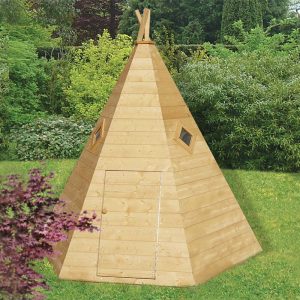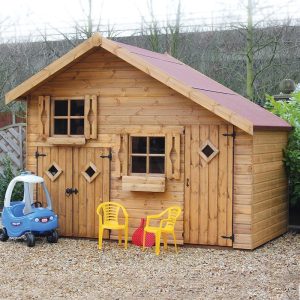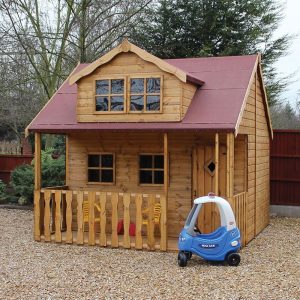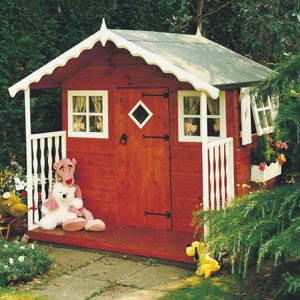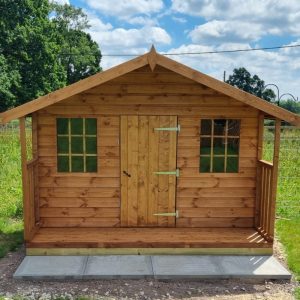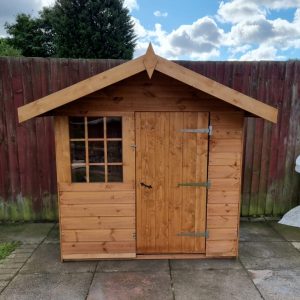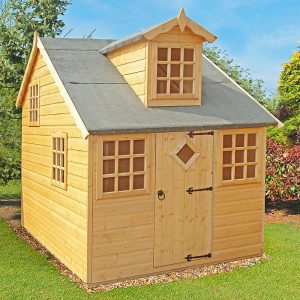An exceptional playhouse in Redlands, sized at 4′ x 6′, promises enduring delight. Brimming with protective features, rest assured your little ones are secure while frolicking in their own charming funhouse equipped with elegant Georgian fixed safety windows. Crafted from premium 12mm shiplap timber panels shielded by our iconic red cedar water-based treatment. The floor and roof boast sturdy 12mm tongue & groove boards, complemented by mineral felt on the roof for enhanced weather resistance. Our goods utilize timber certified to be sustainably sourced and legally harvested. Enjoy the Redlands Garden Buildings 10-year guarantee, safeguarding against typical timber deterioration; however, natural occurrences such as splits or warping are not covered. It is imperative to erect the product on a solid, level foundation made from durable material following the furnished directions. Post-assembly, promptly treat the structure, and then annually with a superior preservative.









